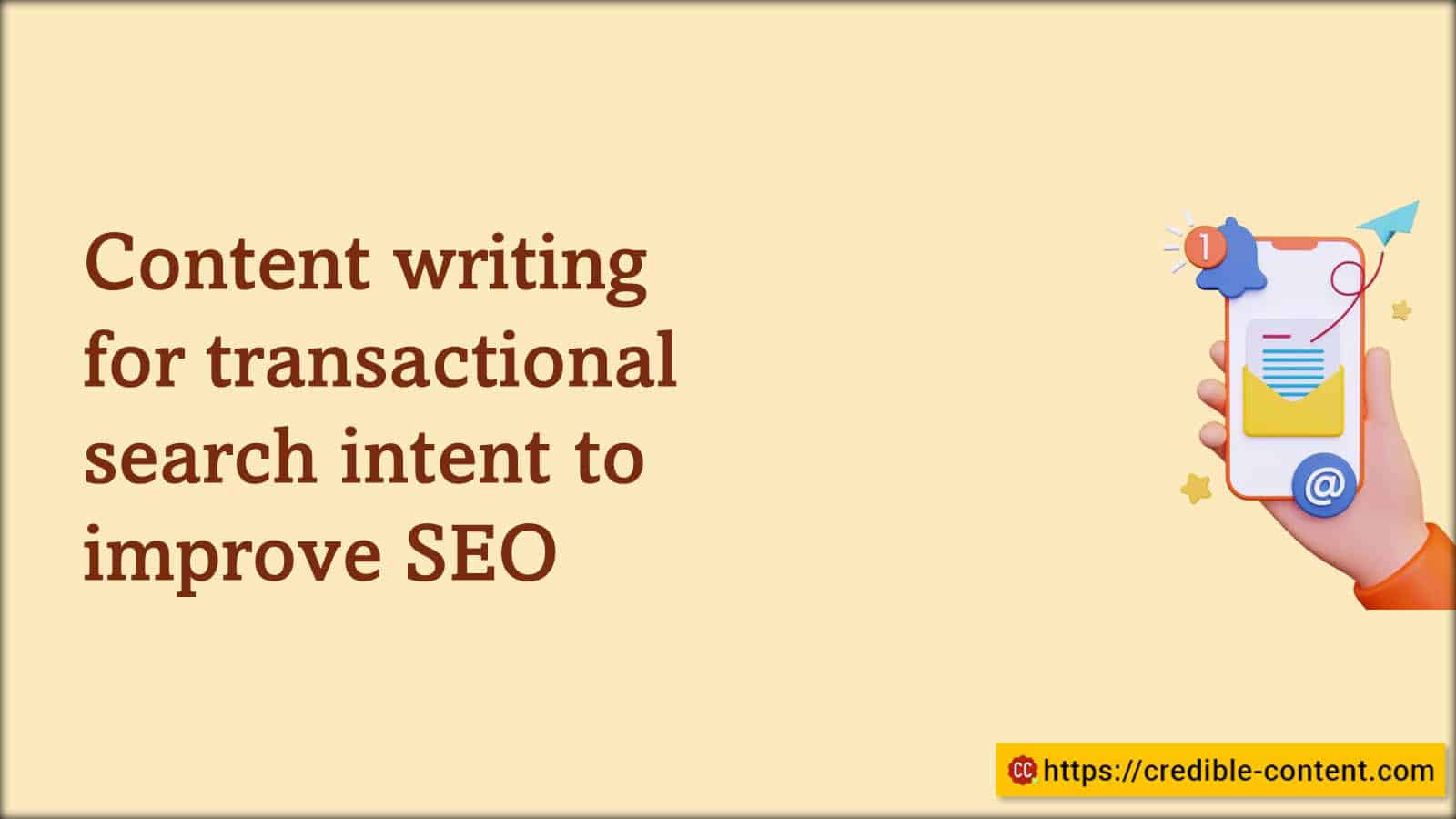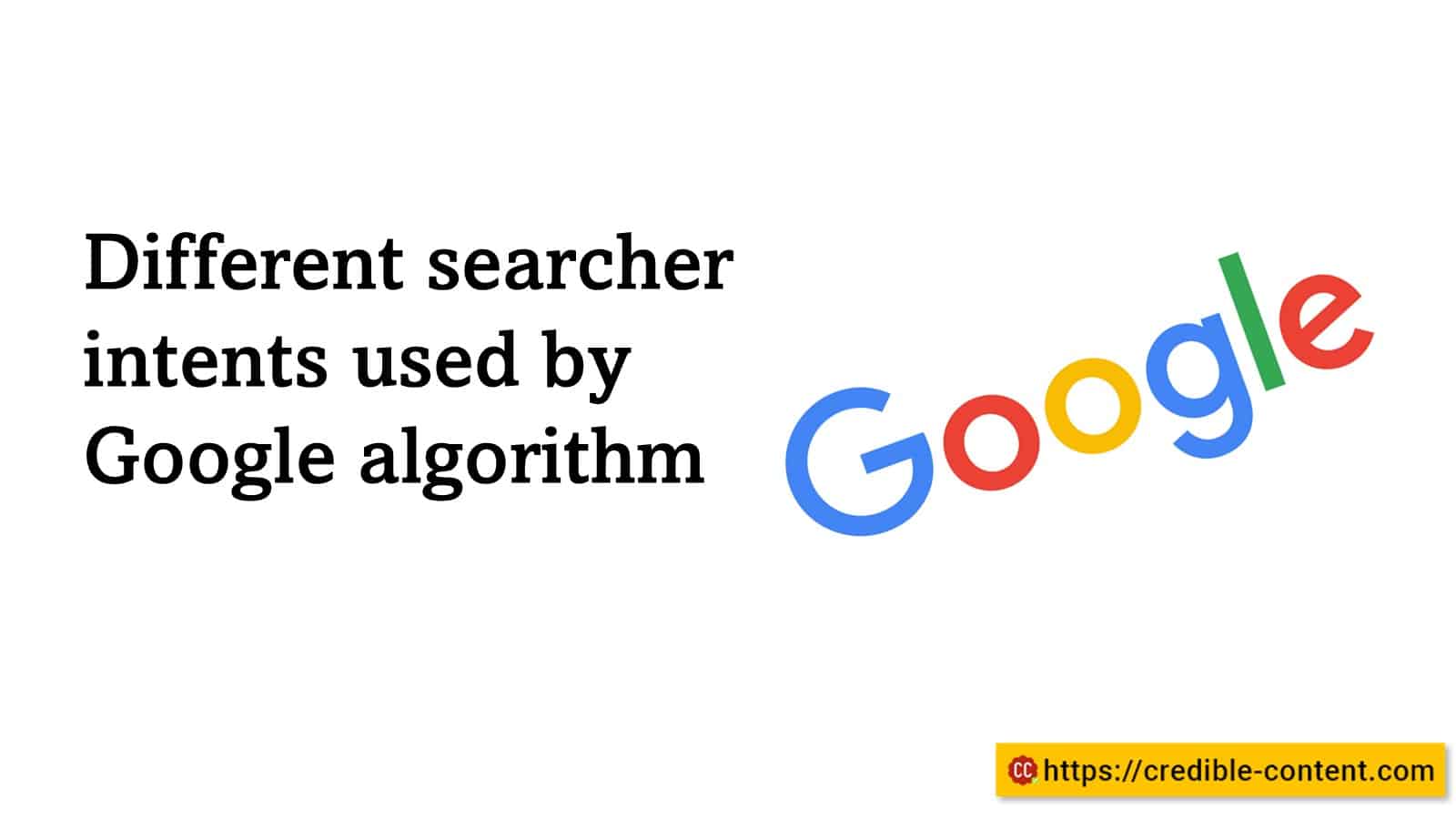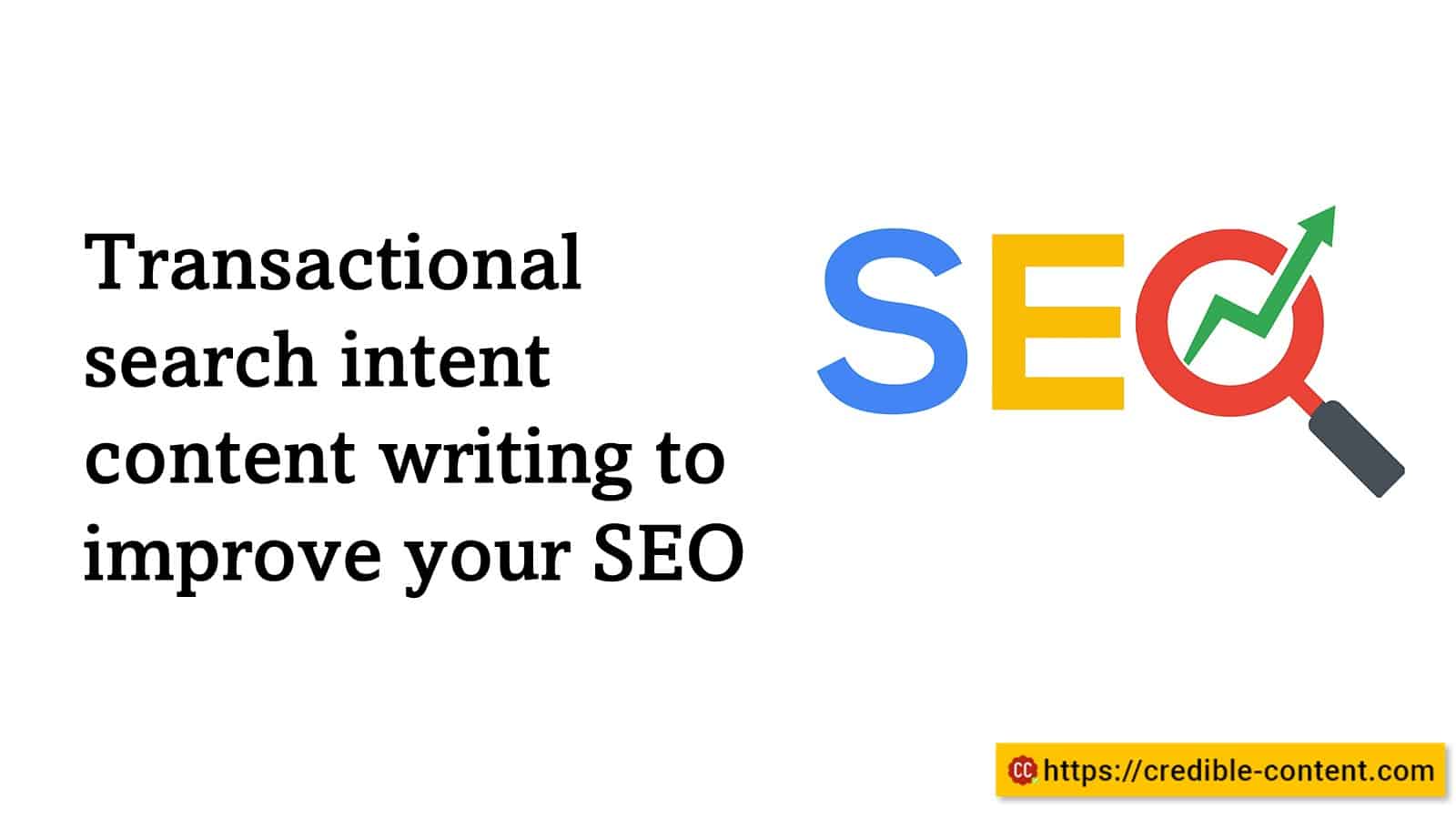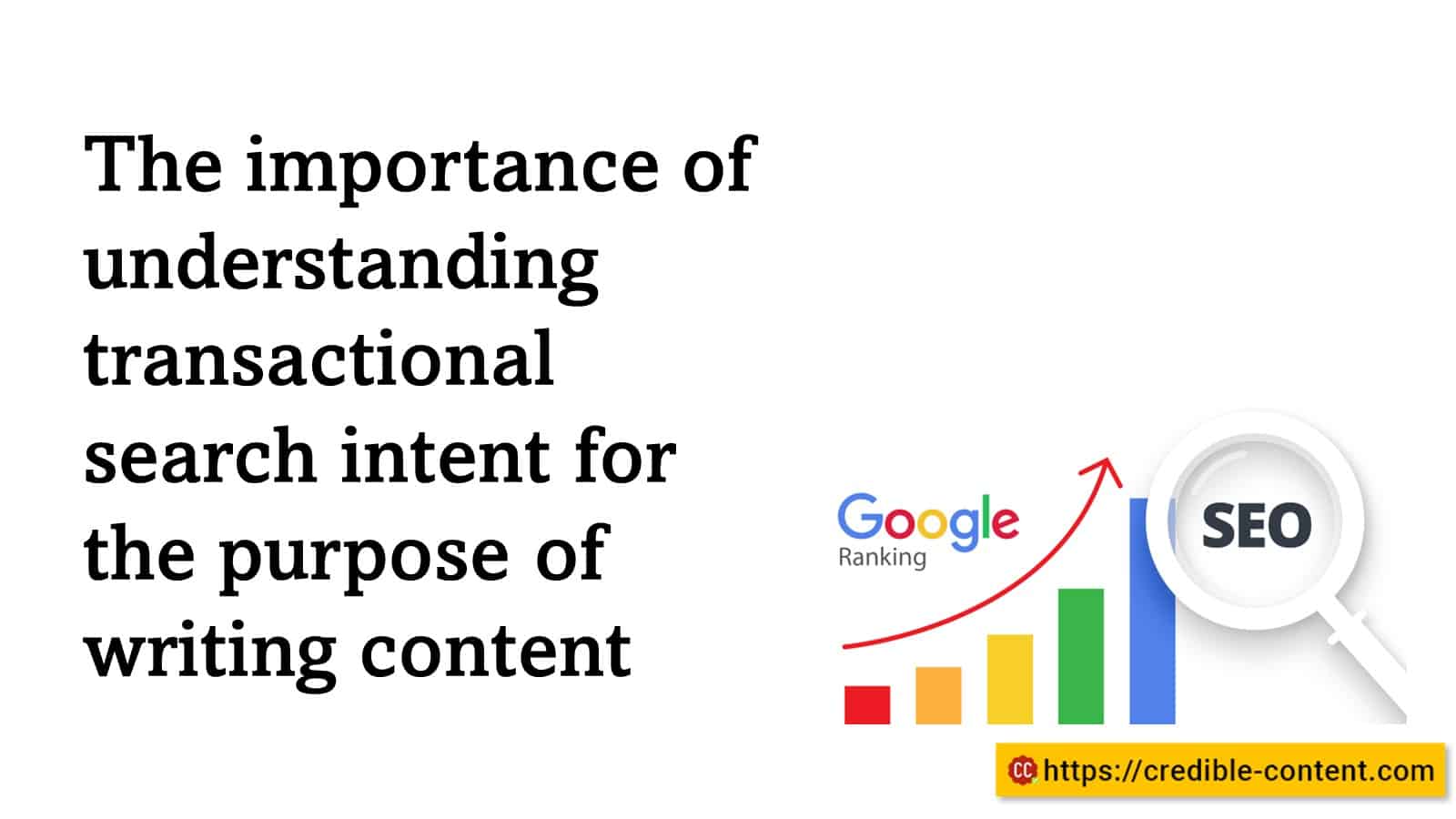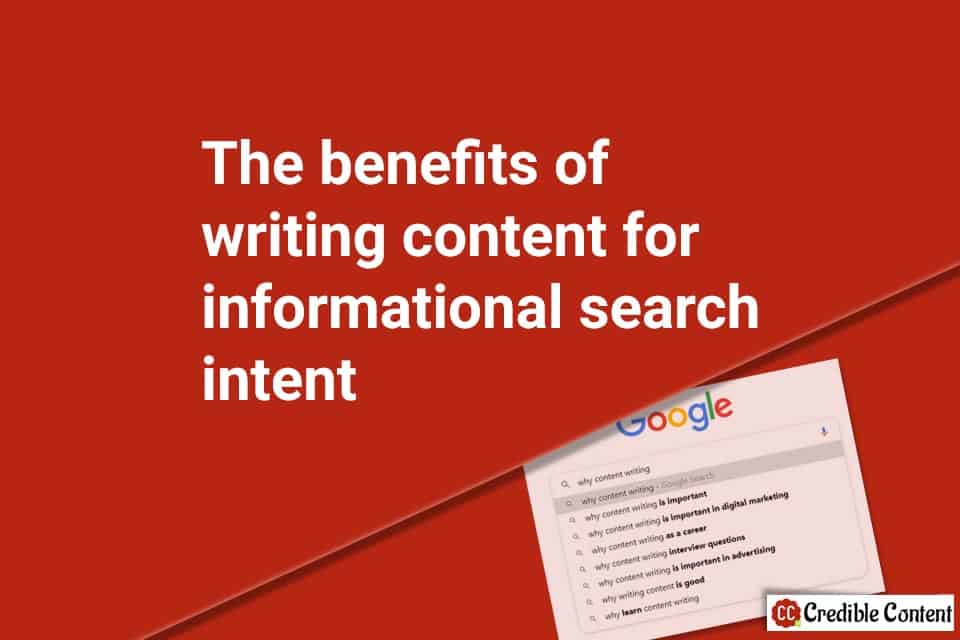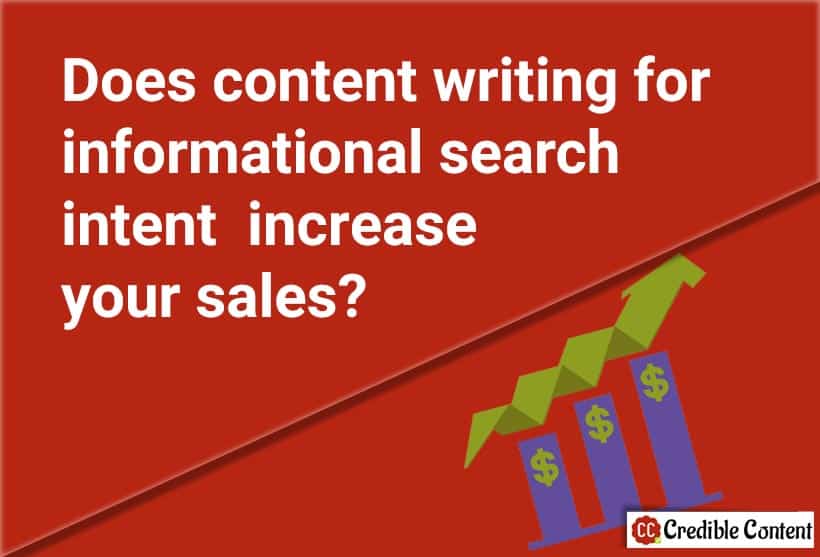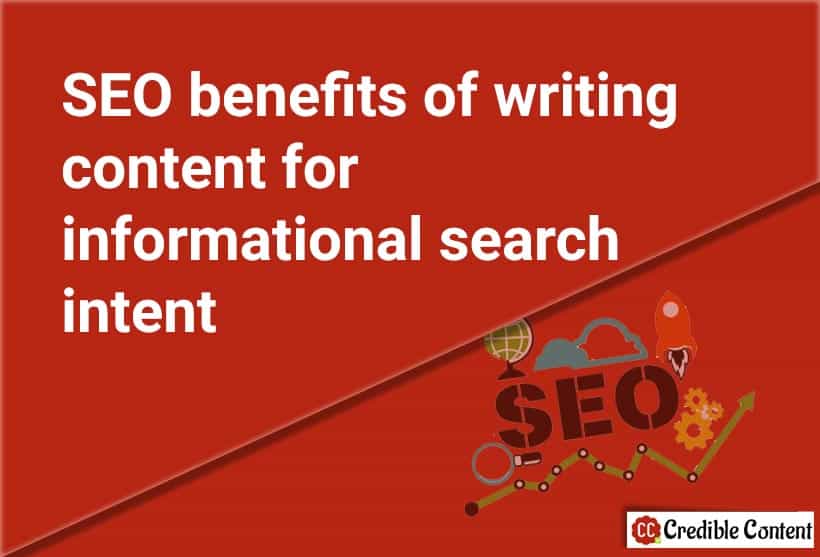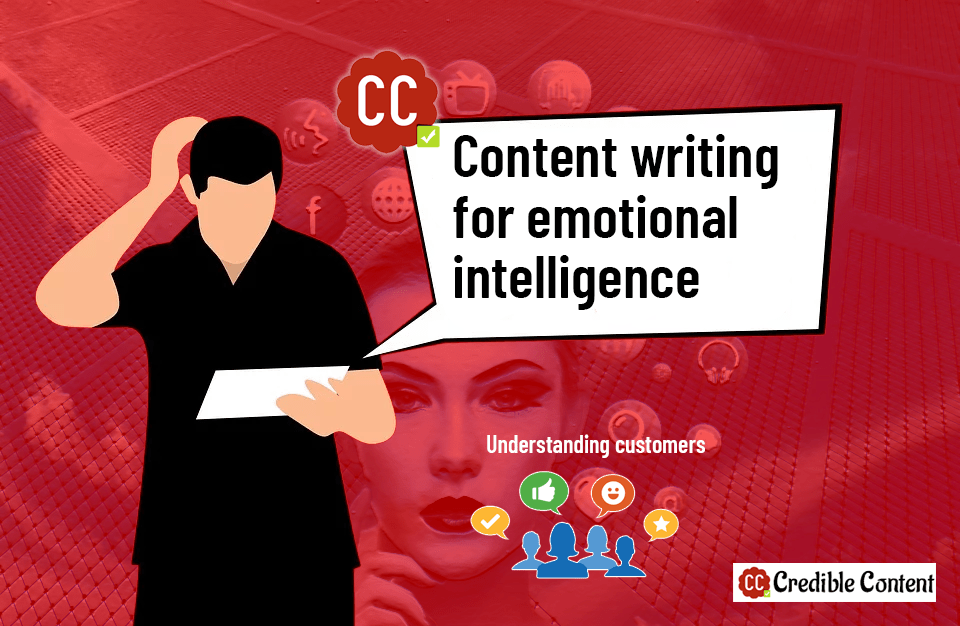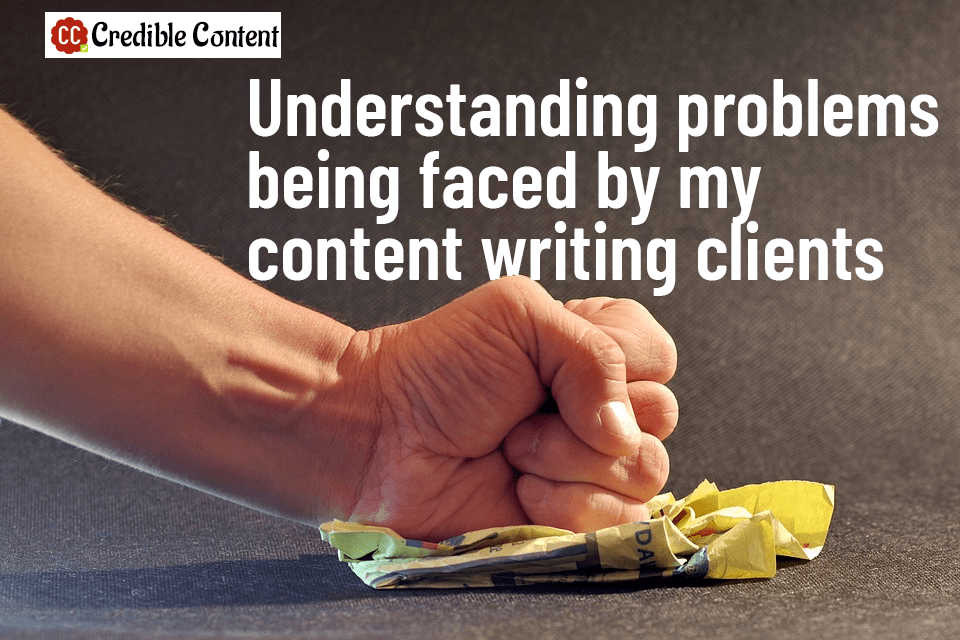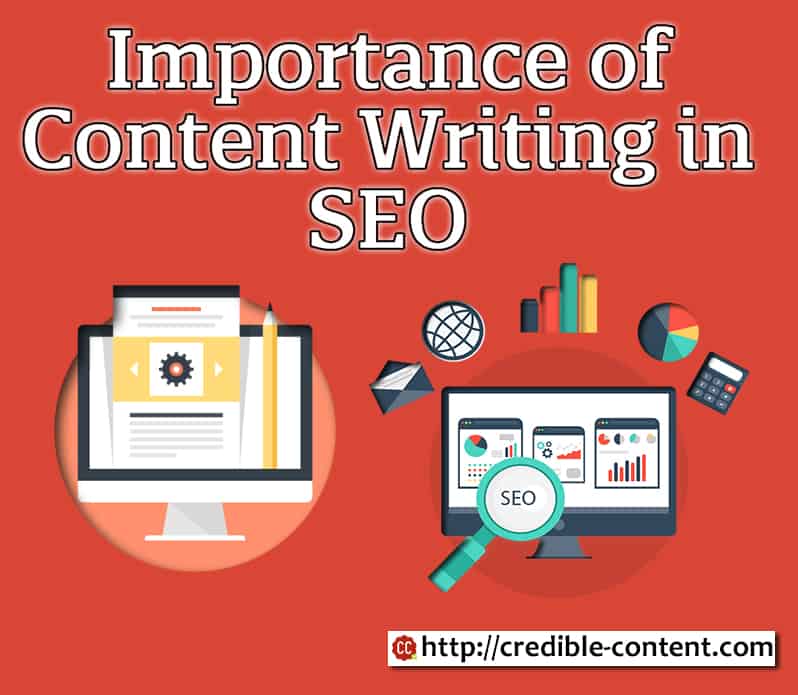When you Google something, you have an intention. What information you find on Google depends on your intention. The intention is reflected through the query that you submit to Google.
In this post you will learn how to write content targeting transactional search intent to improve your SEO.
A quick summary of the entire blog post:
- Transactional search intent is the intention behind a user’s Google search when they are ready to make a purchase.
- It affects your SEO because it helps you create targeted content for users who are ready to buy.
- Understanding transactional search intent allows you to optimize your keywords and phrases.
- Optimizing your content with transactional keywords increases your conversion rates.
- Transactional search intent helps you optimize your product or service pages.
- By aligning your content with transactional search intent, you enhance the user experience.
- Analyzing transactional search intent helps you identify and compete with your competitors.
- Focusing on transactional search intent maximizes your ROI.
- Transactional search intent attracts users who are ready to make a purchase.
- It allows you to tailor your content to address the needs of potential buyers.
- Understanding transactional search intent enables you to optimize your website and content.
- By catering to transactional search intent, you guide users towards completing a purchase.
- Transactional search intent improves the visibility of your product or service pages.
- It prioritizes user experience by providing a seamless journey from search to purchase.
- Analyzing transactional search intent helps you identify your competitors in the transactional space.
- It allows you to position yourself competitively and capture ready-to-buy customers.
- Focusing on transactional search intent reduces wasted resources.
- It drives qualified traffic to your website, increasing your chances of conversion.
- Understanding transactional search intent is essential for effective SEO and content writing.
- It maximizes the effectiveness of your SEO efforts and drives higher ROI.
Google uses search intent to find the best possible answer. It is your main goal. You don’t use Google just for the heck of it. You want to find something.
For example, you search for “best guinea pig food” on Google.
You want to know what the best food for a guinea pig is and this is your intention of searching on Google. Google assumes that after searching for the best food for your guinea pig, you would like to buy it. Hence, Google categorises such a query as “commercial intent”.
But this blog post is about transactional intent and how to write content for Google’s transactional intent.
Google’s transactional intent refers to the type of online search conducted by users when they are looking to make a purchase or engage in a specific transaction.
It’s when someone is actively seeking to buy a product or service, sign up for a subscription, make a reservation, or perform any other action that involves a monetary transaction.
Examples of transactional intent search queries on Google
Here are seven examples of transactional intent search queries on Google, along with explanations of the transactional intent they represent:
“Buy Nike Air Max shoes online”
This query indicates the user’s intention to make a specific purchase of Nike Air Max shoes online.
They are actively looking for an online platform or store where they can buy these shoes.
“Best laptop deals near me”
This query shows the user’s intention to find the best deals on laptops available in their local area.
They are interested in purchasing a laptop and want to explore options that offer competitive prices.
“Order pizza delivery in [city name]”
This query expresses the user’s desire to order a pizza for delivery in a specific city.
They are looking for local pizza places or online platforms where they can place an order and have it delivered to their location.
“Book a hotel room in [destination]”
This query signifies the user’s intent to book a hotel room in a particular destination.
They are actively seeking accommodation options and are interested in making a reservation for their upcoming trip or stay.
“Purchase concert tickets for [artist/band name]”
This query demonstrates the user’s intention to buy tickets for a specific concert featuring their favorite artist or band.
They are looking for platforms or websites where they can purchase these tickets online.
“Where can I find a local car rental service?”
This query indicates the user’s intention to find a car rental service in their local area.
They are interested in renting a car for a specific purpose, such as travel or transportation needs.
“Buy a digital camera with 4K video recording”
This query showcases the user’s intent to purchase a digital camera that offers 4K video recording capabilities.
They are actively searching for options to buy a camera that meets their specific requirements and preferences.
These examples illustrate how users express their transactional intent when searching on Google, indicating their readiness to engage in a commercial transaction or make a purchase.
Difference between commercial search intent and transactional search intent
Sometimes it doesn’t seem to be much different between commercial search intent and transactional search intent because in both the intents, a person intends to buy something.
Nonetheless, there are some major differences.
Commercial search intent
Users are in the research phase of their buying journey and are looking for information about products or services.
They may be comparing prices, reading reviews, or learning about different features.
Transactional search intent
Users are ready to buy and are looking for a specific product or service.
They may be using keywords like “buy,” “price,” or “deals.”
Commercial search intent
Users are more likely to use long-tail keywords, while transactional search intent users are more likely to use short-tail keywords.
Some examples of commercial search intent keywords:
- Best laptop
- Cheap flights to Paris
- SEO services
- Wedding dresses
- Used cars
Some examples of transactional search intent keywords:
- Buy a laptop
- Book a flight to Paris
- Hire an SEO company
- Buy a wedding dress
- Sell my car
A big difference between commercial and transactional search intent is that the search terms for commercial search intent mostly contain adverbs and adjectives, such as “best”, “cheap”, and “used” whereas, search terms for transactional search intent contain action words such as “find”, “buy”, and “hirer”.
A list of different search intents used by Google
1. Informational Intent
- You’re seeking information or answers to your questions.
- For example, you might ask, “Who won the Nobel Prize in Physics in 2021?”
2. Navigational Intent:
- You’re looking for a specific website or webpage.
- You want to navigate directly to a particular online destination.
- For instance, you might search for “Facebook login page.”
3. Transactional Intent
- You have the intention to make a purchase or engage in online transactions.
- You might be searching for products, services, or deals.
- An example query could be “Buy iPhone 12 online.”
4. Commercial Intent
- You’re researching products or services with the intention of making a purchase in the future.
- You may compare options, read reviews, or seek recommendations.
- For example, you could search for “Best DSLR cameras for beginners.”
5. Local Intent
- You’re looking for information about businesses or places in a specific location.
- You may search for nearby restaurants, stores, or services.
- An example query might be “Coffee shops near me.”
6. Transactional Local Intent
- You intend to engage in a local transaction, such as finding a local store to buy a specific product.
- You might search for “Buy running shoes in San Francisco.”
7. Navigational Local Intent
- You’re seeking specific local businesses or locations.
- You want directions or contact information for a particular place.
- For instance, you might search for “Starbucks near Times Square.”
8. Branding Intent
- You’re specifically searching for a particular brand or organization.
- You want to visit the official website or learn more about the brand.
- An example query could be “Nike official website.”
Now that we are clear about the transactional search intent, let’s find out how to write content that targets individuals using transactional search queries.
Tips on writing content for transactional search intent to improve SEO
Certainly! Here are 20 tips to improve SEO for transactional search intent content writing, presented in a conversational style using “you” and “I,” written in easy English. I’ll make sure to repeat the keywords “transactional search intent,” “content writing,” and “SEO” throughout. Let’s dive in:
Conduct keyword research
When focusing on transactional search intent content writing for SEO, you should identify relevant keywords that align with your offerings and audience.
Optimize your content for target keywords
I recommend incorporating your target keywords naturally throughout your transactional search intent content to improve SEO visibility.
Write compelling meta titles and descriptions
Craft enticing meta titles and descriptions that include your target keywords to increase click-through rates and improve SEO for transactional search intent.
Ensure fast page loading speed
You should optimize your website’s loading speed for a smooth user experience and to satisfy search engines’ ranking algorithms for transactional search intent content writing and SEO.
Make your content mobile-friendly
With the increasing use of mobile devices, it’s crucial to ensure your content is responsive and provides a seamless experience for users with transactional search intent, which positively impacts SEO.
Utilize structured data markup
Implement structured data markup to help search engines understand and display relevant information from your transactional search intent content in search results, ultimately enhancing SEO.
Create unique and persuasive product/service descriptions
Write compelling, unique, and keyword-rich descriptions for your products or services to attract users with transactional search intent and improve SEO rankings.
Optimize product images
By optimizing product images with descriptive file names and alt tags containing relevant keywords, you can improve SEO for transactional search intent content writing.
Include customer reviews and ratings
Incorporate genuine customer reviews and ratings on your transactional search intent content to build trust and enhance SEO performance.
Improve internal linking
Implement strategic internal linking within your transactional search intent content to guide users to related products, services, or relevant information, benefiting SEO.
Optimize your website’s navigation
Streamline your website’s navigation to provide a user-friendly experience, making it easy for users with transactional search intent to find the desired products or services, thereby improving SEO.
Leverage social proof
Showcase social proof elements such as the number of customers served, testimonials, or social media engagement to build credibility and improve SEO for transactional search intent content writing.
Monitor and analyze user behavior
Use tools like Google Analytics to track user behavior, identify patterns, and make data-driven optimizations to improve SEO performance for transactional search intent content.
Implement a secure and trustworthy payment process
Ensure a secure and trustworthy payment process on your website, reassuring users with transactional search intent, and improving their experience and SEO rankings.
Encourage user-generated content
Engage your customers and encourage them to share their experiences through reviews, ratings, and testimonials, which not only builds trust but also contributes to improved SEO for transactional search intent content writing.
Optimize for local SEO
If you have a physical store or serve specific regions, optimize your transactional search intent content for local SEO by including location-specific keywords and accurate business information.
Continuously monitor and improve page performance
Regularly assess your transactional search intent content’s performance, identify areas for improvement, and make necessary optimizations to maintain and enhance SEO rankings.
Utilize schema markup for products
Implement schema markup specifically designed for products to provide additional information to search engines, improving visibility and SEO for transactional search intent content writing.
Optimize your website for voice search
With the rise of voice assistants, optimize your transactional search intent content for voice search by using conversational language and incorporating long-tail keywords and natural language phrases.
Stay updated with SEO trends and algorithm changes:
Stay informed about the latest SEO trends, algorithm changes, and best practices to adapt your transactional search intent content writing and maintain strong SEO performance.
Remember, applying these tips consistently and monitoring their impact will help you improve SEO for your transactional search intent content writing over time.
Why is it important to understand transactional search intent content writing for better SEO?
Understanding transactional search intent is crucial for your SEO efforts and content writing. Let me share with you seven reasons why it’s important:
It helps you create targeted content
When you understand transactional search intent, you can tailor your content to directly address the needs and desires of users who are ready to make a purchase.
By doing so, you increase the chances of attracting the right audience and driving conversions.
You can optimize your keywords
By analyzing transactional search intent, you gain insights into the specific keywords and phrases that users are using when they’re ready to buy.
This knowledge allows you to optimize your website and content with relevant transactional keywords, improving your visibility in search engine results.
It increases your conversion rates
When you align your content with transactional search intent, you’re more likely to attract users who are already in the buying mindset.
By providing the information and solutions they’re looking for, you can guide them towards completing a purchase, leading to higher conversion rates.
You can optimize your product or service pages
Understanding transactional search intent enables you to optimize your product or service pages by incorporating transactional keywords, clear calls-to-action, and compelling product descriptions.
This optimization helps search engines recognize the transactional nature of your pages, making them more visible to potential buyers.
It enhances your user experience
By catering to transactional search intent, you prioritize user experience by providing a seamless journey from search to purchase.
When users find exactly what they’re looking for quickly and easily, they’re more likely to have a positive experience and become repeat customers.
You can compete effectively
Analyzing transactional search intent allows you to identify your competitors in the transactional space.
By understanding their strategies and optimizing your content accordingly, you can position yourself competitively and increase your chances of capturing customers who are ready to buy.
It maximizes your ROI
When you focus on transactional search intent, you optimize your SEO efforts to target users who are more likely to convert.
This targeted approach reduces wasted resources and increases your return on investment (ROI) by driving qualified traffic to your website.
Understanding transactional search intent is essential for your SEO and content writing.
By aligning your strategies with users who are ready to make a purchase, you can attract the right audience, increase conversions, and maximize the effectiveness of your SEO efforts.
In conclusion, understanding transactional search intent is crucial for effective SEO and content writing.
You can create targeted content, optimize keywords, increase conversion rates, enhance the user experience, compete effectively, and maximize your ROI.
Transactional search intent content writing allows you to attract the right audience, optimize your website and content, guide users towards completing a purchase, and drive qualified traffic.
By prioritizing transactional search intent in your content writing, you can optimize your SEO efforts and achieve better results for your business.

